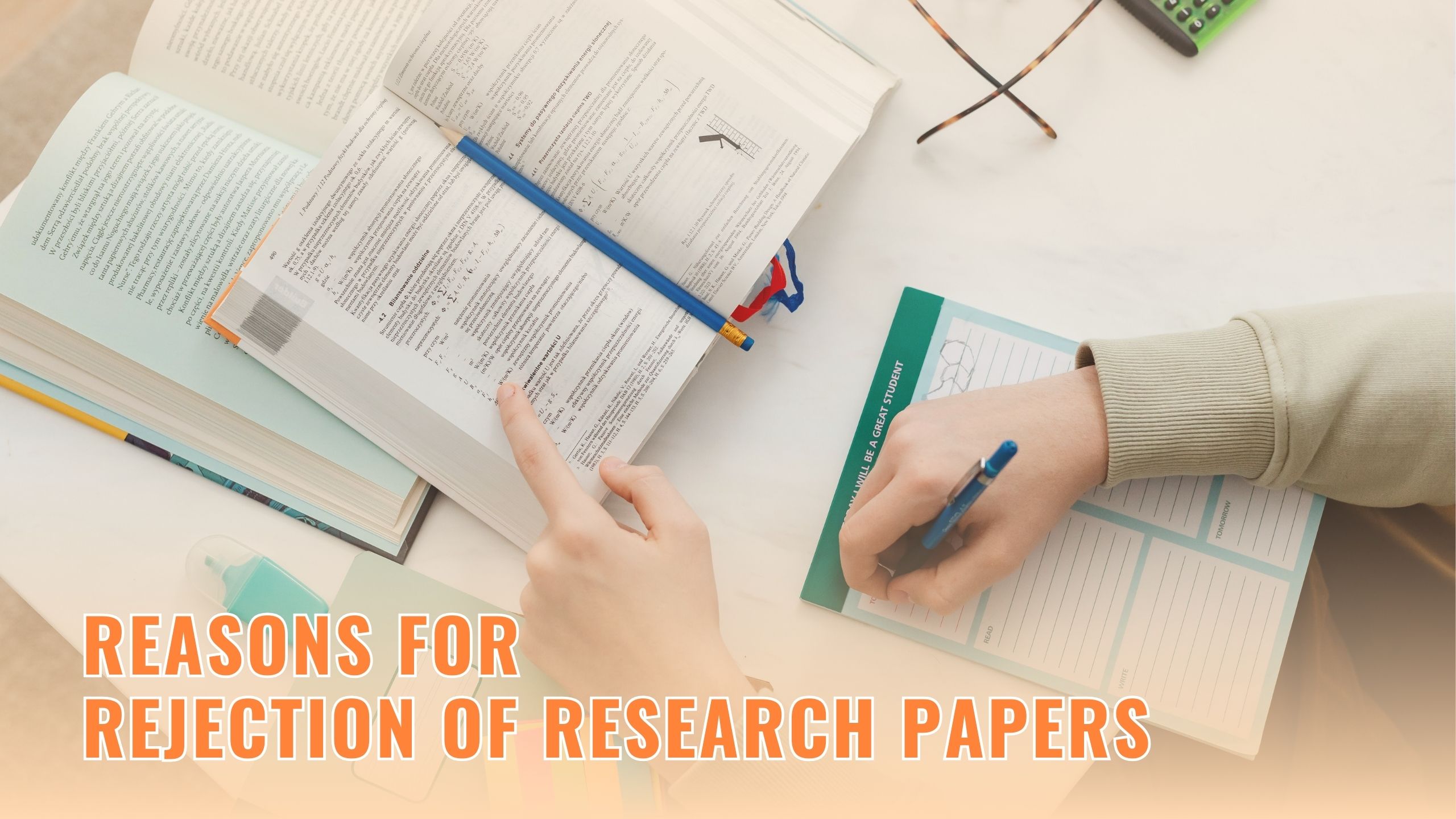Writing a research paper is more than just presenting facts and findings it’s about showcasing the depth of your understanding, analytical skills, and academic integrity. Quality of your paper plays a important role in determining how your work is perceived by reviewers, editors, and the wider research community.
Structured and refined paper not only enhances your publication chances but also builds your credibility as a researcher. Best Research Paper attention to detail is essential from clear organization and precise language to accurate citations and flawless formatting.
10 Tips for Writing a Good Research Paper
Review Your Research Objectives and Structure!
Before submission essential to ensure your research paper maintains a strong connection between the research question, objectives, and findings. Every part of the paper from the introduction to the conclusion should contribute toward answering your main research problem. Alignment demonstrates coherence and depth, two key qualities of a well-written and best research paper.
Strengthen Your Literature Review!
Strong literature review is the foundation of any best research paper. It reflects your understanding of existing studies, highlights what has already been explored, and identifies where your work fits within the broader academic conversation.
Make sure your review includes recent and relevant research from credible sources to demonstrate that your study is grounded in current knowledge.Instead of simply summarizing past studies, focus on synthesizing them analyze patterns, differences, and trends in the literature to build a clear narrative.
Refine Methodology and Data Presentation!
Methodology is at the heart of every best research paper, as it determines the reliability and credibility of your findings. Make sure your methods are transparent, detailed, and reproducible, allowing other researchers to replicate your study if needed. Clearly describe your research design, sampling process, data collection techniques, and analytical tools to maintain academic integrity.
Presenting your results, use visual aids such as tables, graphs, and charts to make complex data easier to interpret. Effective visuals not only enhance understanding but also make your paper more engaging and reader-friendly.
Enhance Language, Style, and Academic Tone!
Communicate your research is just as important as the content itself. To craft the best research paper, focus on maintaining clarity, precision, and objectivity throughout your writing. Each sentence should convey your ideas logically and concisely, leaving no room for ambiguity.
Avoid using unnecessary jargon, repetition, or overly complex phrases that might confuse readers. Instead, aim for a smooth and professional tone that reflects your academic intent while remaining easy to follow. Proofreading is key even minor grammatical or formatting errors can weaken the impact of an otherwise strong paper.
Ensure Proper Referencing and Citation!
Proper referencing is a crucial element in creating the best research paper, as it reflects academic honesty and gives due credit to original authors. Always follow the required citation style whether APA, MLA, Chicago, or IEEE consistently throughout your paper. Consistency in citation format demonstrates attention to detail and adherence to scholarly standards.
Take time to cross-check each reference for accuracy, ensuring that every source mentioned in the text appears in the reference list and vice versa. Pay attention to formatting details like italics, punctuation, and capitalization, as even small errors can reduce the professionalism of your paper.
Ensure Proper Referencing and Citation!
Proper referencing is a important element in creating the best research paper, as it reflects academic honesty and gives due credit to original authors. Always follow the required citation style APA, MLA, Chicago, or IEEE consistently throughout your paper. Consistency in citation format demonstrates attention to detail and adherence to scholarly standards.
Take time to cross-check each reference for accuracy, ensuring that every source mentioned in the text appears in the reference list and vice versa . Attention to formatting details like italics, punctuation, and capitalization, as even small errors can reduce the professionalism of your paper.
Final Quality Checklist Before Submission!
Before sending your paper to a journal or conference, take time to go through a final quality check to ensure it meets every academic and formatting requirement. Final review stage can make the difference between a good paper and the best research paper.
Start by carefully reviewing formatting, figures, and captions. Make sure all visuals are clear, correctly labeled, and aligned with the text. Then, double-check the title, keywords, and abstract to ensure they accurately represent your study and are consistent with your findings and objectives.
Improving the quality of your research paper before submission is not just about editing it’s about refining your ideas, ensuring clarity, and presenting your work with academic precision. From aligning your objectives and strengthening your literature review to refining methodology and perfecting citations, every step contributes to producing the best research paper possible.
FAQs
1. Why is it important to review my research paper before submission?
Reviewing helps identify grammatical, structural, and factual errors, ensuring that your paper meets academic standards and presents your ideas clearly and professionally.
2. What are the key areas to check when revising a research paper?
Focus on clarity of objectives, logical structure, citation accuracy, grammar, formatting consistency, and overall coherence of arguments.
3. How can I make my research paper more readable and engaging?
Use concise language, organize content with clear headings, avoid jargon, and include visuals like tables or figures to support your findings.
4. How do I ensure my references and citations are correct?
Follow the required citation style (APA, MLA, Chicago, etc.), cross-check in-text citations with your reference list, and use citation tools like Zotero or Mendeley.
5. What tools can help improve the quality of my research paper?
Use plagiarism checkers (Turnitin, Grammarly), grammar tools (Grammarly, ProWritingAid), and formatting guides provided by your target journal.
6. Should I get my paper peer-reviewed before submission?
Yes. Seeking feedback from colleagues, mentors, or professional editors can help identify weaknesses and enhance the quality of your work.
7. How can I ensure my research paper meets journal submission guidelines?
Carefully read the target journal’s author instructions regarding structure, formatting, referencing style, word count, and file type before submission.
8. How do I improve the abstract and conclusion sections?
Summarize key findings, emphasize significance, and ensure they align with your research objectives — they should provide a clear snapshot of your study.
9. What common mistakes should be avoided before submitting a paper?
Avoid plagiarism, inconsistent formatting, missing references, unclear arguments, and neglecting to proofread the final draft.
10. How much time should I spend on the final review before submission?
Ideally, allow a few days between writing and revising. A fresh perspective helps you catch errors and refine your paper’s overall presentation.



